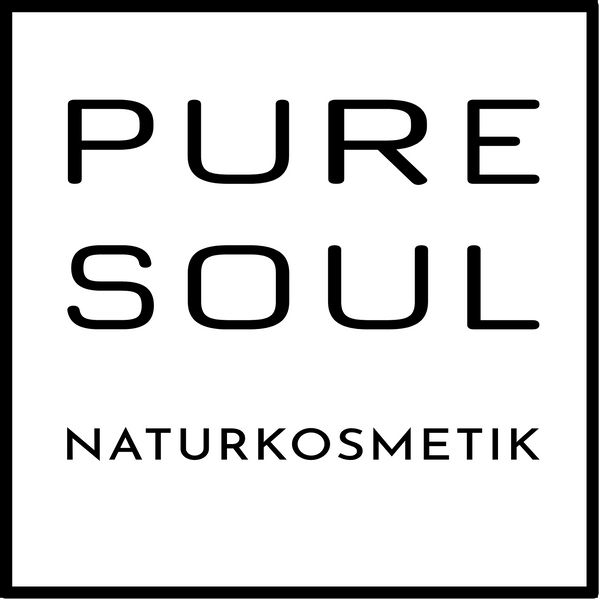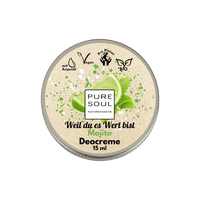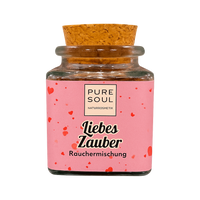
How harmful is aluminum
Table of contents
Deodorant and antiperspirant - what's the difference?
In common usage, the term “ deodorant ” is used for both deodorant and antiperspirant. However, there is a difference in the way the two products work:

deodorant
A deodorant usually neutralizes underarm odor with added alcohol and masks it with perfume. However, there are other natural alternatives, such as those from PURE SOUL Naturkosmetik .

Antiperspirant
However, if you sweat excessively and want to prevent this, you should use antiperspirants .
These act as antiperspirants and contain aluminum salts that are intended to narrow the sweat pores and temporarily prevent sweating .

What's the catch?
Sounds all well and good, but there's apparently a catch: Antiperspirants often contain aluminum salts , which can be dangerous under certain circumstances.
Here you can find out if and when aluminum in deodorant can be harmful and what alternatives there are.

What are aluminum salts?
Aluminum salts represent different aluminum compounds such as aluminum chloride – and these compounds are often used in cosmetic products such as deodorants.
Labels on deodorants such as "aluminum-free" or "aluminum-free" encourage consumers, especially those concerned about their health, to prefer these products. Aluminum-free deodorants are said to be less harmful to the body.

How dangerous is aluminum in deodorant?
According to a warning from the Federal Institute for Risk Assessment , deodorants containing aluminum have a bad reputation.
The intake of aluminum is said to increase the risk of breast cancer and cause damage to the bones, kidneys and liver , among other things.
Drugstore shelves have long been advertising that their products contain 0% aluminum salts .
NEW study from 2020
However, new studies in summer 2020 showed that the risk is probably not that high after all.
The total exposure to aluminum through absorption through antiperspirants would be lower than assumed.
However, some scientists doubt the quality of these studies and continue to advise caution when using deodorants containing aluminum.
What does toxicologist Marike Kolossa recommend?
For example, toxicologist Marike Kolossa from the Federal Environment Agency explains that the latest studies from 2020 are not representative because not enough participants were tested and only aluminum residues tested based on urine were taken into account.
Furthermore, the study participants, aged between 20 and 39, did not belong to the risk group . Aluminum is stored in the body for a long time, and it can even take decades for the aluminum salts to be excreted from the body.

How much aluminum is problematic?
To avoid overabsorbing the metal, we should not consume more than 1 mg of aluminum per kilogram of body weight per week, according to the recommendation of the European Food Safety Authority (EFSA). However, experts claim that we already reach this critical limit through our diet .
The aluminum content of commercial deodorants varies between 0.2 and 5.8 percent. However, it is difficult to determine how much aluminum salt actually enters our bodies. This depends, among other things, on individual use, the specific product, and the amount of aluminum salts in the antiperspirants.
What risks does aluminum pose?
Conventional antiperspirants prevent annoying underarm sweating thanks to the aluminum salts that bind with proteins in the sweat gland ducts, thus preventing sweat from reaching the skin's surface. But what health risks could the aluminum salts in deodorants pose?
Pore blockage
The antiperspirant effect in antiperspirants is caused by the contraction of the sweat pores in the armpits.
In addition, the gel-like aluminum-protein complex ensures that underarm sweat does not reach the surface by essentially clogging the pores.

Possible promotion of breast cancer development
In a study conducted in 2011, large amounts of aluminum were also found in the breast fluid of affected women.
However, it must be added that it has not yet been possible to determine when the aluminum was deposited in these places in the body and whether the metal is the real trigger of the disease.
Research into the health effects of aluminum on our bodies is far from complete.

Development of Alzheimer's
Aluminum has long been suspected of contributing to the development of Alzheimer 's disease.
For example, an increased amount of aluminum was found in the brains of deceased Alzheimer's patients.

"Unfortunately, at the end of the day, it smelled bad under the arms."
If conventional deodorants fail and you have concerns about their ingredients , it can be a good idea to look for alternatives . That's exactly what the founder of PURE SOUL natural cosmetics and author of this blog post did after she couldn't find a satisfactory solution for herself.
" Unfortunately, at the end of the day, it smelled bad under the arms."
Out of necessity, she developed her own deodorant cream, which consists of natural and organically certified ingredients and is completely free of preservatives and alcohol .
This means it doesn't burn your skin, which is an important feature, especially after shaving.
An interesting fact is that while developing her deodorant cream, Melanie accidentally discovered sage as a natural antiperspirant.
Sage is a plant that has been used in natural medicine for centuries and, among other beneficial properties, also has an antiperspirant effect.
For people concerned about potential side effects from aluminum antiperspirants or other ingredients in deodorants, seeking natural alternatives may be a good option.
There are now many products on the market that are made from natural and environmentally friendly ingredients and can still effectively protect against unpleasant body odor. For example, PURE SOUL's Deodorant Cream.











